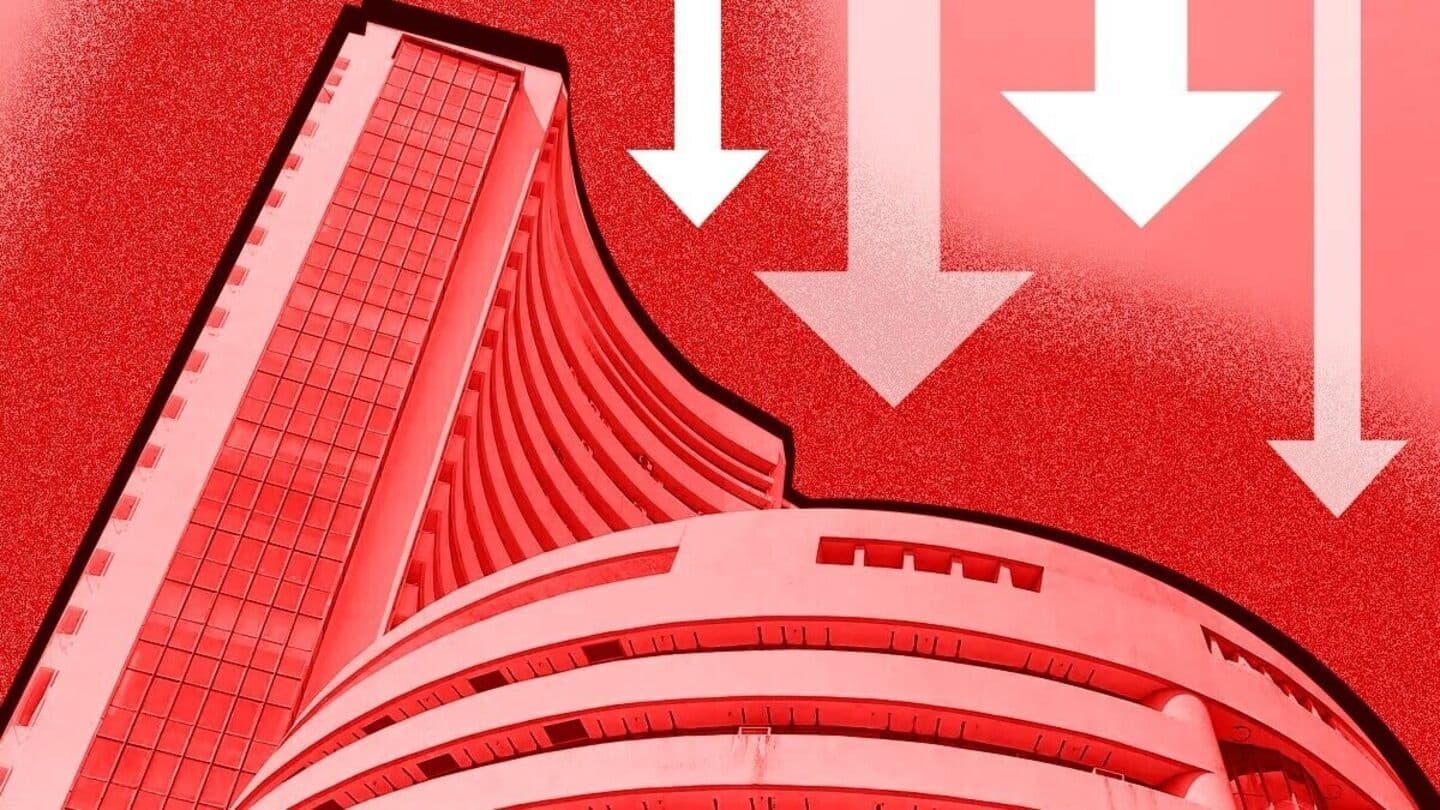
Sensex crashes 3,000 points as Trump's tariffs rattle global markets
What's the story
Indian benchmark indices, Sensex and Nifty, began Monday's session sharply lower, mirroring a global sell-off driven by escalating trade tensions and mounting fears of a recession in the US.
Sensex opened 3,000 points lower at 72,333 (down 4%) while Nifty crashed almost 1,000 points at 21,925.
The combined market capitalisation of BSE-listed firms declined by ₹19.4 lakh crore, settling at ₹383.95 lakh crore.
Market impact
All sectors hit; Nifty IT plunges over 7%
All major sectors were hit today, with Nifty Metal plunging 8% and Nifty IT falling over 7%.
Other sectors such as Nifty Auto, Realty, and Oil & Gas also saw declines of over 5%.
The broader market also saw a decline, with small-cap and mid-cap indices falling 10% and 7.3%, respectively.
Global sell-off
Indian equities mirror sharp declines across global markets
The recent fall of the NASDAQ index into bear territory on Friday, plunging more than 20% from its recent peak, was one of the major reasons behind today's bloodbath.
The Indian stock market also reflected the sharp declines across global markets. Japan's Nikkei plummeted 7%, South Korea's Kospi fell 5% and China's blue-chip index lost 7%. The Hang Seng index slumped over 10.5%.
Economic outlook
Recession fears overshadow inflation worries
Market participants now believe recession concerns outweigh short-term inflation risks.
While US consumer price index (CPI) data, due later this week, is expected to show a 0.3% increase for March, analysts fear tariffs will soon drive up costs significantly across sectors— from groceries to automobiles.
These rising input costs are also expected to squeeze corporate profit margins just as earnings season begins.
Save havens
Investors flee to safe havens amid increasing global trade uncertainty
Investors fled to safer assets as global recession fears mounted, triggering a sharp selloff in equities.
The yield on the 10-year US Treasury fell as demand for government bonds surged. Gold and silver scaled to new heights.
China's retaliatory 34% tariffs on US goods have intensified trade war concerns, stoking fears of disrupted supply chains and a broader slowdown in global demand.